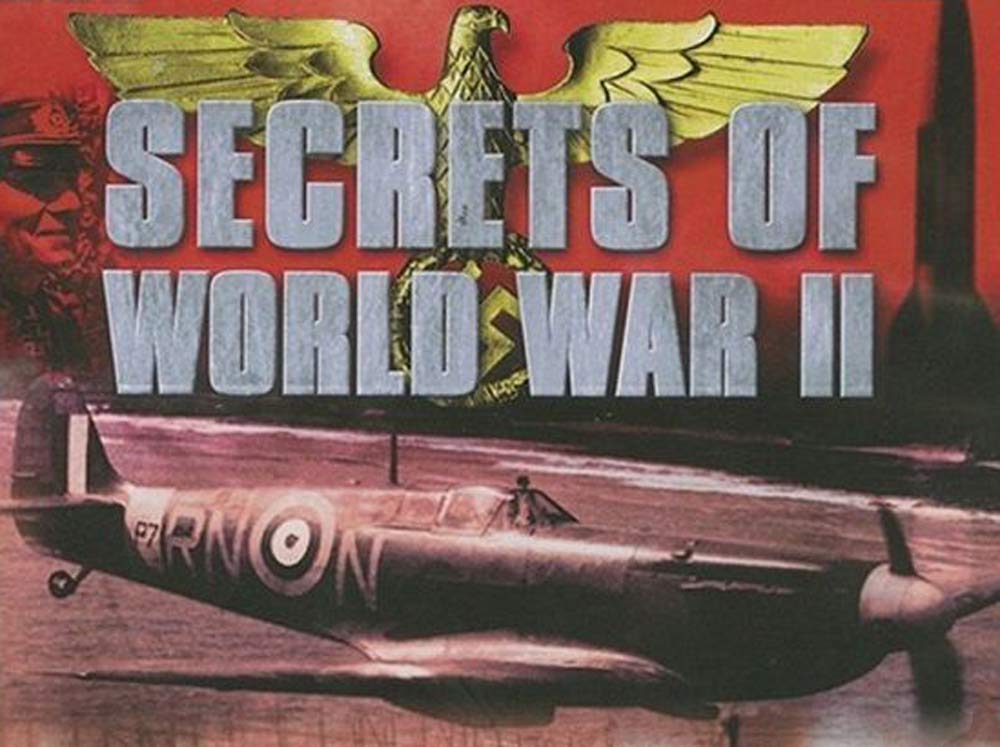Secrets of World War II episode 6: He was nicknamed the ‘Desert Fox’ and highly decorated by Hitler. However, Rommel was not in sympathy with the Nazi party and may have been involved in the plot to kill Hitler. Did the legendary German General commit suicide or was he murdered? On October 14, 1944, Germany’s greatest military leader said goodbye to his beloved wife and son, then drove away with two officers sent by Adolf Hitler. Just moments later, Field Marshal Erwin Rommel was dead. Was it suicide…or retribution? Why would the Fuhrer order the death of his one-time supporter and close ally? Discover the fascinating details of “What Really Happened to Rommel?”
Learn how a brave and potentially fatal act of defiance brought Rommel into Hitler’s inner circle. Ride along with the famed “Ghost Division” across the African sands to see how the great tactician used a brilliant combination of bluffs, subterfuge and lightning-strike attacks to achieve his most famous victories. Follow the sequence of events that actually ended Rommel’s career–and his life. And witness rare footage of the elaborate state funeral for Germany’s favorite war hero, artfully orchestrated well before his death.
Secrets of World War II episode 6
You probably know the History, now discover the incredible SECRETS OF WORLD WAR II. Rarely has a war produced such clear cut reasons to fight as World War II. On the one hand were the totalitarian Dictators – Tojo, Hitler and Mussolini. On the other were the great democracies of the Western World which were gradually regaining their feet after the Great War of 1914-18 and the Wall Street Crash. Suddenly, ordinary men and women from all walks of life found themselves thrown into fearsome, nerve-tingling situations worthy of any Hollywood movie. The only difference in this series is that every story is true. Real people emerge as the Heroes of Telemark. Ordinary GIs and US Airforce and Navy personnel suddenly find themselves flying against the Japanese in China, jungle fighting in Burma and being dropped by submarine on enemy coasts at midnight.
These untold stories can now be examined in great detail with the benefit of hindsight, newly-discovered archive film, maps and computer graphics which can complete the picture for today’s viewer. Each fifty-two minute story covers the background to the main action. It will give the viewer a clear view of the historical context, the strategic objective and the tactical effort made by flyers, sailors and foot-soldiers – often in the most oppressive and life-threatening situations – to win victory from the enemy.
This is an inspiring series with a giant canvas including much never before seen colour film. Over 300,000 hours of archive material have been searched for its compilation. Specially orchestrated music and compositions from the great composers all contribute to the excitement and drama of some of the world’s greatest stories of bravery under fire.
It is the largest series of its kind ever produced and with recently released secret footage will give the viewer a new insight into the great untold war stories of World War II. In many cases, this series gives the true stories for the first time this Century.
Erwin Rommel
Johannes Erwin Eugen Rommel was a German field marshal during World War II. Popularly known as the Desert Fox, he served in the Wehrmacht (armed forces) of Nazi Germany, as well as serving in the Reichswehr of the Weimar Republic, and the army of Imperial Germany.
Rommel was a highly decorated officer in World War I and was awarded the Pour le Mérite for his actions on the Italian Front. In 1937, he published his classic book on military tactics, Infantry Attacks, drawing on his experiences in that war.
In World War II, he commanded the 7th Panzer Division during the 1940 invasion of France. His leadership of German and Italian forces in the North African campaign established his reputation as one of the ablest tank commanders of the war, and earned him the nickname der Wüstenfuchs, “the Desert Fox”. Among his British adversaries he had a reputation for chivalry, and his phrase “war without hate” has been uncritically used to describe the North African campaign.
A number of historians have since rejected the phrase as myth and uncovered numerous examples of German war crimes and abuses towards both enemy soldiers and native populations in Africa during the conflict. Other historians note that there is no clear evidence Rommel was involved or aware of these crimes, with some pointing out that the war in the desert, as fought by Rommel and his opponents, still came as close to a clean fight as there was in World War II. He later commanded the German forces opposing the Allied cross-channel invasion of Normandy in June 1944.
With the Nazis gaining power in Germany, Rommel gradually came to accept the new regime. Historians have given different accounts of the specific period and his motivations. He was a supporter of Adolf Hitler, at least until near the end of the war, if not necessarily sympathetic to the party and the paramilitary forces associated with it. In 1944, Rommel was implicated in the 20 July plot to assassinate Hitler. Because of Rommel’s status as a national hero, Hitler wanted to eliminate him quietly instead of having him immediately executed, as many other plotters were.
Rommel was given a choice between committing suicide, in return for assurances that his reputation would remain intact and that his family would not be persecuted following his death, or facing a trial that would result in his disgrace and execution; he chose the former and committed suicide using a cyanide pill. Rommel was given a state funeral, and it was announced that he had succumbed to his injuries from the strafing of his staff car in Normandy.




